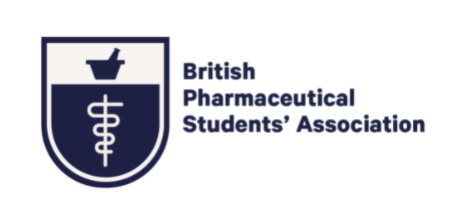Pharmacy students and careers in Clinical Commissioning Groups (CCGs)
While writing this article, I am overwhelmed by the extension of pharmacy roles that I used to simply dream about when I was a pharmacy student in the ‘90s. At the time that I qualified, it was a world of traditional pharmacy roles – hospital, community and industry in the main. Most of my peers and me completed post-graduate diplomas in the hope that clinical roles for pharmacists were in the pipeline.
My journey started in community pharmacy and I thoroughly enjoyed the patient interaction and the difference that I made to all the patients that I interacted with. This could range from advising on inhaler technique, emergency supply of medicines or the most suitable OTC product to purchase. I had always wanted to extend my clinical role, and sought to do this through my next role in a PCT (Primary Care Trust). The PCT role allowed me an insight into the workings on the other side of the fence – GP practices and the NHS funding. It also opened up my eyes to how isolated community pharmacy was in this larger healthcare world. I therefore joined a head office group providing support to the independent community pharmacists nationally. This role came about at the start of the new community pharmacy contract, and there were many things that community pharmacy had to get to grips with in a very short space of time. It was exciting, challenging and meant thinking outside the box to find innovative ways to allow busy community pharmacists to adopt and embed all the new requirements. One of my career highlights included liaising with a university to provide MUR (Medicines Use Reviews) accreditation through workshops run at weekends! I was able to work with a few pharmaceutical companies to create community pharmacy led services. This was the beginning of the service-led and outcome based models that we are keen to implement in healthcare today and particularly as CCGs. This is my current role in the ever changing world of pharmacy.
Medicines management and pharmacists as experts in medicines is not a new concept, and their historic role was providing advice on best and cost-effective medicines. Many articles have been written on the under-utilised skills of pharmacists, or the under recognition of their achievements and it will resonate very closely with any member of a medicines management team up and down the country who has seen this role evolve rapidly. Medicines management pharmacists today carry out reviews in care homes (Care Home Pharmacists), domiciliary settings (Integrated Care Pharmacists) and GP practices (Practice-based Pharmacists). They know their evidence bases to advise clinicians in every setting (Medicines Information Pharmacists) – hospital, anticoagulation clinics, memory clinics and even discharge settings (Urgent Care/NHS 111 Pharmacists). They are involved in service re-designs, writing business plans, involved in complex financial recovery plans and advising on new medicines (Commissioning Pharmacists). They are involved in policy making (NICE Associates) and negotiating with primary and secondary care as to the best use of limited resources (Interface Pharmacists). As I write this in 2018, I am speaking to a pharmacist who is working in an urgent care centre and is an independent prescriber, while working with another pharmacist who is writing a business plan for polypharmacy reviews, while another pharmacist is writing a policy following on from the Gosport Review (Governance Pharmacists). The sky is the limit for modern day pharmacists!
However, using this expertise in an ever changing healthcare landscape can bring its own set of unique challenges. Reflecting on the various roles, the consistent challenge that was faced by pharmacists including myself was always about experience and highlighting the financial value that you bring to any organisation. What can I advise the pharmacy student of today, stepping into the brink of this shifting landscape? Hopefully I can sum it up into a few inspiring lines:
Never be afraid of the challenge! Yes, the role may be new and it may be scary, but seize the opportunity. You could be the inspiration for the next pharmacy student.
Don’t let the thought of no experience faze you! We all had to start somewhere and sometimes you may have to gain this experience in a different way, but don’t give up.
Know your worth! Most organisations do not understand medicines and pharmacists well, it will be up to you to show this value, and don’t be shy about doing this in any role. Show what you bring to the table and be prepared to back-up your facts.
Don’t lose sight of your limitations as a healthcare professional! Yes we can go to the moon and back in the future, but does your professional indemnity/insurance cover you?
Think outside the box! When tasked with a challenge, think outside the box for a solution – can you work with another profession to co-create the solution? Can you enhance the offering by combining it with something else? Be innovative.
Above all, enjoy your role! Pharmacists have worked hard to break their traditional work moulds, so above all enjoy the new roles that are in the pipeline.
